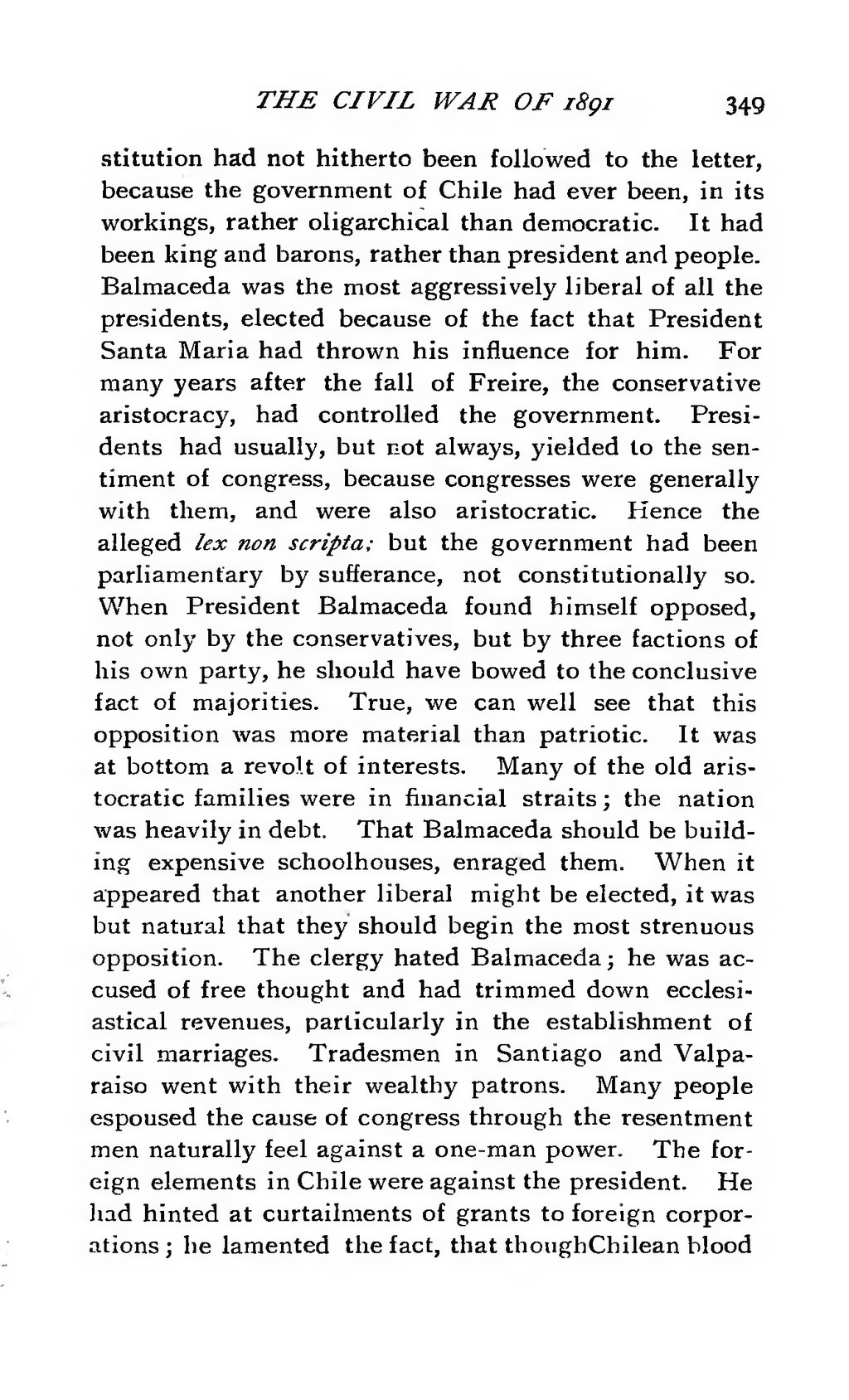THE CIVIL WAR OF i8gi 349 stitution had not hitherto been followed to the letter, because the government of Chile had ever been, in its workings, rather oligarchical than democratic. It had been king and barons, rather than president and people. Balmaceda was the most aggressively liberal of all the presidents, elected because of the fact that President Santa Maria had thrown his influence for him. For many years after the fall of Freire, the conservative aristocracy, had controlled the government. Presi- dents had usually, but not always, yielded to the sen- timent of congress, because congresses were generally with them, and were also aristocratic. Kence the alleged lex non scripta; but the government had been parliamentary by sufferance, not constitutionally so. When President Balmaceda found himself opposed, not only by the conservatives, but by three factions of his own party, he should have bowed to the conclusive fact of majorities. True, we can well see that this opposition was more material than patriotic. It was at bottom a revolt of interests. Many of the old aris- tocratic families were in financial straits; the nation was heavily in debt. That Balmaceda should be build- ing expensive schoolhouses, enraged them. When it appeared that another liberal might be elected, it was but natural that they should begin the most strenuous opposition. The clergy hated Balmaceda; he was ac- cused of free thought and had trimmed down ecclesi- astical revenues, particularly in the establishment of civil marriages. Tradesmen in Santiago and Valpa- raiso went with their wealthy patrons. Many people espoused the cause of congress through the resentment men naturally feel against a one-man power. The for- eign elements in Chile were against the president. He liad hinted at curtailments of grants to foreign corpor- ations; he lamented the fact, that thoughChilean blood
Page:A history of Chile.djvu/387
This page needs to be proofread.
